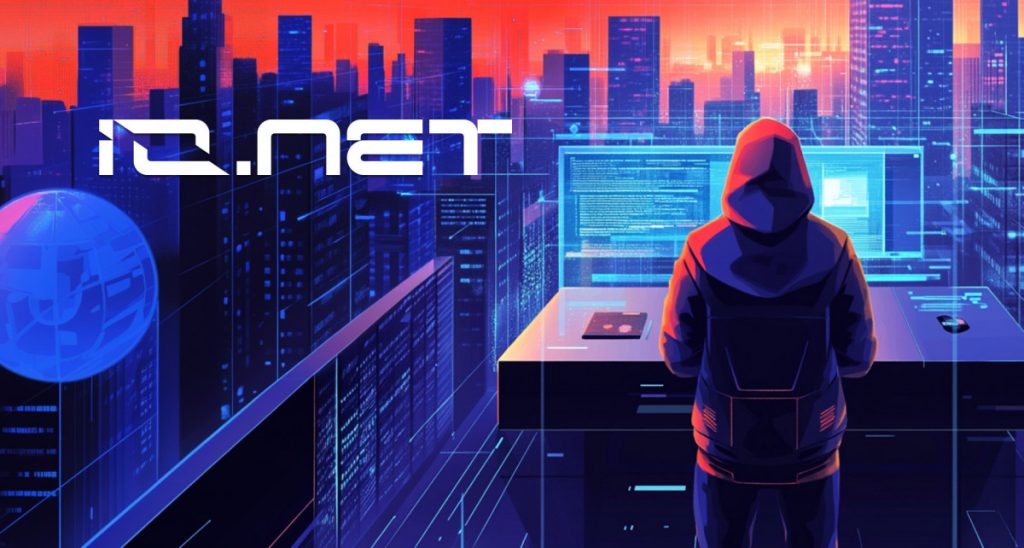The Revolutionary Approach of io.net in AI for Developer Empowerment
In Brief
io.net is reshaping the landscape of AI infrastructure to minimize expenses, enhance accessibility, and empower developers through a community-oriented network driven by transparent incentives.

The landscape of artificial intelligence is undergoing a significant transformation. Rather than relying solely on large, centralized cloud services, innovative startups like io.net are exploring decentralized methods to make AI computing not only cheaper but also more accessible. Gaurav Sharma, the CTO of io.net, brings years of experience from major tech giants such as Binance and Amazon, and he, along with his dedicated team, is leading the way in creating a decentralized framework that will revolutionize the utilization of AI resources. says Challenging Conventional AI Infrastructure
The hurdles faced in AI development often stem from the exorbitant costs of computational power. Predominantly controlled by centralized entities such as Amazon Web Services (AWS), the industry imposes sky-high fees that are frequently unattainable for smaller startups or individual developers. Gaurav argues that io.net offers a refreshing alternative by harnessing a decentralized network of hardware contributed by individuals, businesses, and data facilities.
This innovative model significantly cuts expenses. Rather than having to invest in expensive tech infrastructure, companies can tap into a collective pool of computing resources for a fraction of the usual costs. This democratizes AI research and development, making it available to a broader audience who might not have had the means to participate otherwise.
The Challenges of Adopting a Decentralized Framework
Embracing a decentralized approach to AI computing involves more than just reducing costs; it also brings technological and operational challenges. Gaurav emphasized the importance of ensuring that distributed systems maintain scalability and low latency while delivering dependable performance. In industries that require immediate processing capabilities, these decentralized networks must meet the same high standards set by traditional providers.
Trust is another critical aspect. For a decentralized framework to thrive, it is essential for users to have assurance that resources are reliable and accessible. Gaurav highlighted the importance of transparency in building trust within the network. io.net addresses this concern by providing real-time, accurate data regarding their network's performance. As Gaurav stated, a transparent ecosystem garners trust and motivates participation.
Introducing a New Economic Framework for AI Growth
A fundamental element of io.net's approach is the introduction of IO Coin, a native currency that facilitates transactions on the platform. In contrast to typical cloud service pricing models, this method provides greater flexibility and incentivizes direct participation.
Developers utilize IO Coin to compensate for processing power while those who contribute hardware receive tokens in return. Gaurav noted that the platform also features an AI marketplace where developers can create, train, and deploy AI models, receiving rewards based on their performance. This ecosystem fosters collaboration and ensures contributors are financially encouraged to enhance AI innovation.
Growing AI Through a Community-Centric Network
Rather than relying on centralized data centers, io.net gathers GPU power from individuals, businesses, and other suppliers. According to Gaurav, this decentralized model not only makes AI computing more accessible but also significantly reduces overall costs.
Companies that previously spent vast sums leasing GPUs from centralized providers can make substantial savings. Gaurav pointed out that by lowering computing expenses, businesses can allocate more funds toward hiring, research, and product evolution, thus increasing their competitiveness in a market increasingly driven by AI.
Sustaining quality in a decentralized network is vital. io.net actively evaluates contributors to ensure they meet performance benchmarks. Gaurav mentioned that subpar hardware is removed from the network to maintain exceptional quality while still benefiting from the flexibility of a decentralized system.
The Future of AI and Its Decentralization
Looking ahead, platforms focused on decentralized AI could fundamentally reshape how artificial intelligence is developed and utilized. Gaurav predicts that, rather than relying on a handful of major cloud companies, developers will gain entry to a more transparent and competitive environment.
io.net envisions a future where AI developers have seamless access to everything they need—computational power, model deployment capabilities, and data management—within a decentralized framework. Feedback from the community will be instrumental in guiding the platform's evolution, ensuring it aligns with user needs.
Platforms like io.net are paving the way for a new kind of AI industry by lowering entry barriers and providing financial incentives for contribution. The establishment of decentralized infrastructure could play a crucial role in shaping the future of AI development.
Please be aware that the content on this page is not intended as legal, tax, investment, financial, or any other form of advice. It is important to only invest what you can afford to lose and to seek independent financial advice if there are any uncertainties. For further information, we recommend reviewing the terms and conditions along with the help and support sections provided by the issuer or advertiser. MetaversePost is dedicated to providing accurate and unbiased reporting, but market conditions can change unexpectedly.
Disclaimer
In line with the Trust Project guidelines Victoria is a writer covering a wide array of technology-related subjects, including Web3.0, AI, and cryptocurrencies. Her extensive background equips her to produce insightful articles for a diverse audience.







